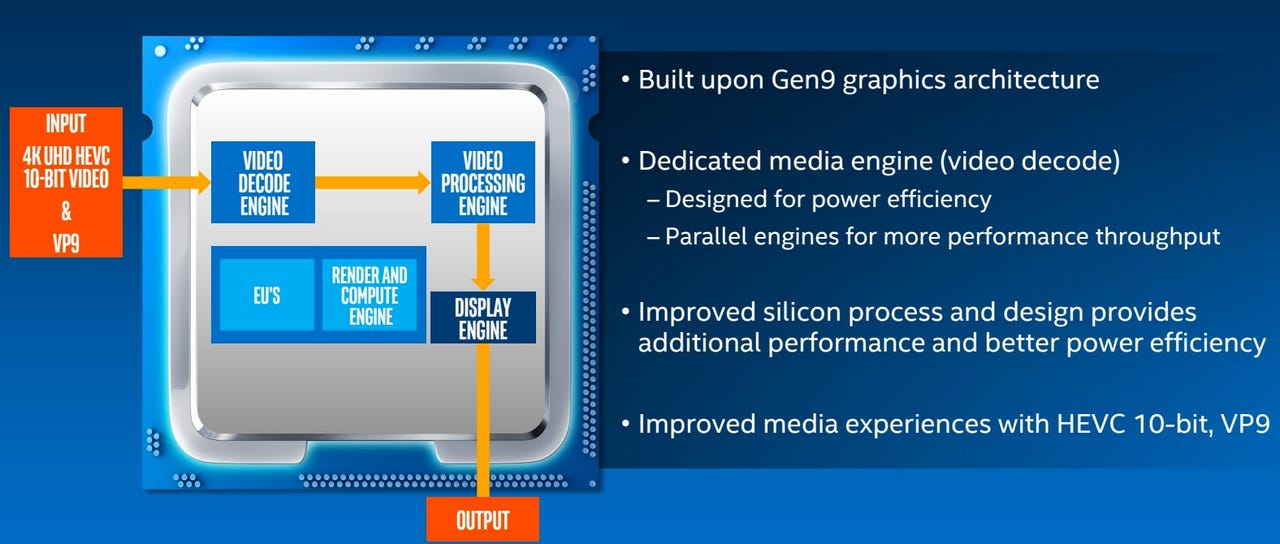Intel launches 7th generation processors to push 4K UHD to the masses

Intel says that the modern-day consumer is now demanding an "immersive" experience from the internet and has unveiled the 7th generation Intel Core processor family to support this concept through 4K UHD, 360-degree video, and high-resolution video streaming.
On Tuesday, the tech giant said the new range of processors has been designed for a concept Intel calls the "immersive internet," the idea surrounding the web becoming richer in content.
According to Karen Regis, director of mobile platform marketing at Intel, consumers are demanding more immersive experiences such as 4K UHD, virtual reality, and e-sports -- alongside high-quality video -- and so the PC must transform to suit these trends.
The PC is the "ideal device for the immersive internet," the executive says, but there must be enough processing power to follow suit.
The 7th generation processors, developed under the codename "Kaby Lake," are built on the Skylake architecture. The 14nm processors are supported by a new media engine which is equipped with new HEVC 10-bit decode capabilities for better playback of media content up to 4K UHD and new VP9 decode features for improved 4K UHD,4K 360-degree playback while multitasking.

In addition, the processor family -- including Intel Core m3, Intel Core i5, and i7 processors -- come with Intel HD Graphics, Turbo Boost, and Speed Shift capabilities, alongside improved photo and video editing, multiple video streams, and high-resolution video chat.
The firm says there is a "significant" improvement in performance in comparison to previous generation hardware due to the new codecs and a new "media block" framework which speeds up hardware acceleration for both codecs and color depths.
Intel also claims that on average, the new processors will allow consumers to watch up to 9.5 hours of 4K video playback without a problem.
The 7th generation processors will also support Gen 3 PCIe usage, increasing data transfer rates.
In addition, while Intel's first-generation processors used 18 watts of power as a design point, the company notes that the 7th generation uses only 4.5 watts, a vast increase in efficiency achieved over several decades.
Intel expects devices equipped with the new processor range to begin shipping by September, and over 100 products have been developed using the new hardware at different price points for the first wave. Roughly 350 new designs expected to hit the market by January 2017.